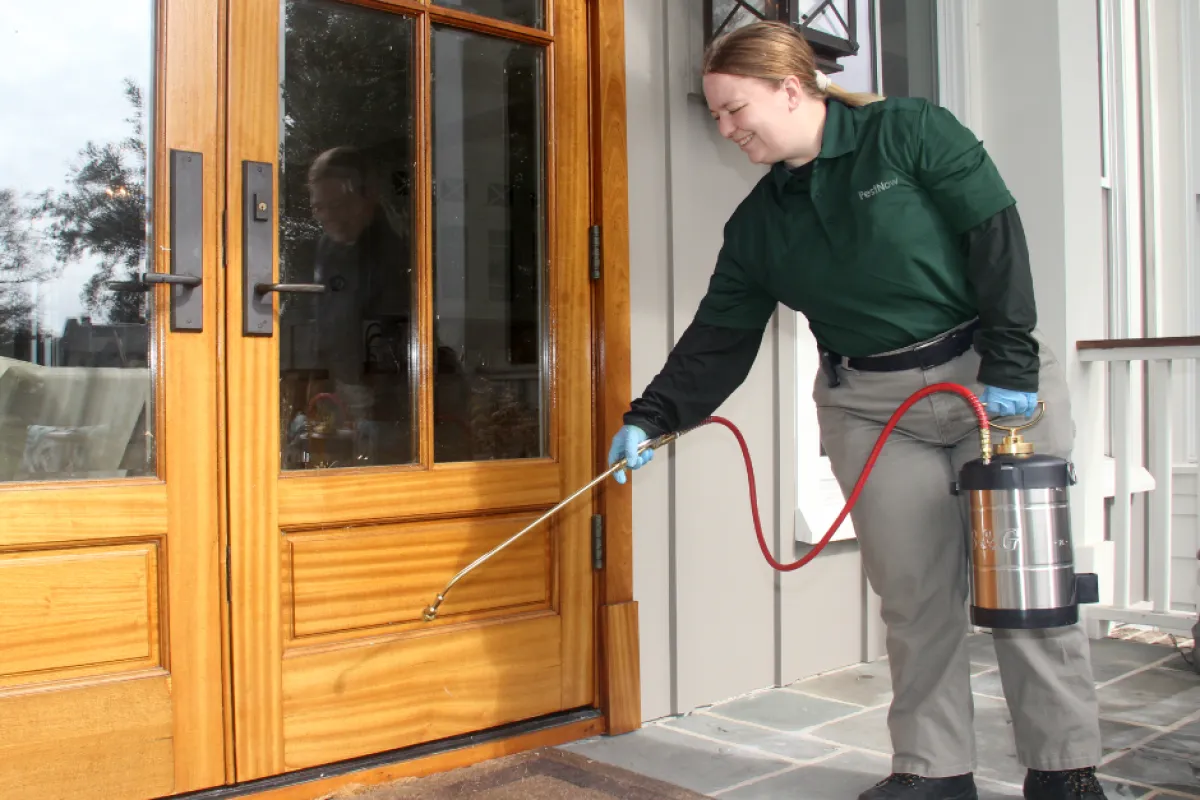Portland Exterminators A1 for Bed Bugs - Trusted Regional Professionals
Portland Exterminators A1 for Bed Bugs - Trusted Regional Professionals
Blog Article
Efficient Insect Control Providers: A Thorough Consider Elimination Techniques and Avoidance Procedures
In the world of pest control services, the successful monitoring of problems requires a precise technique that incorporates various methods and steps for both eradication and avoidance. From Integrated Parasite Management (IPM) techniques that prioritize sustainable remedies to chemical extermination techniques developed for targeted elimination, the toolbox versus bugs is vast and complex.

Integrated Parasite Administration (IPM) Strategies
Integrated Parasite Administration (IPM) Strategies encompass a thorough technique to pest control that concentrates on tracking, avoidance, and control approaches to successfully take care of bug populaces. By integrating various strategies, IPM aims to decrease the impact of bugs while also minimizing the dependence on chemical pesticides. Prevention exists at the core of IPM, stressing practices like appropriate hygiene, maintenance of hygiene, and sealing access indicate discourage parasites from infesting buildings. Tracking plays a crucial function in IPM by routinely checking and recognizing parasite levels to figure out the ideal intervention limits. Control methods in IPM prioritize using physical, biological, and cultural methods prior to transforming to chemical therapies as a last resource. These methods consist of presenting all-natural predators, environment modification, and employing capturing tools to maintain insect populations in check. On the whole, IPM promotes a sustainable and ecologically mindful technique to pest monitoring, advertising lasting remedies that guard both human wellness and the ecological community.
Chemical Elimination Methods
Chemical extermination strategies are typically employed in bug control services to effectively get rid of insect populaces that present a threat to human wellness and residential or commercial property. These methods involve making use of various chemical compounds specifically made to target and get rid of bugs such as bugs, rats, and other undesirable creatures. The application of pesticides, pesticides, rodenticides, and various other chemical agents is carefully controlled to ensure maximum performance while reducing dangers to humans, family pets, and the setting.
One of the crucial advantages of chemical extermination methods is their capacity to offer fast and targeted outcomes, making them particularly valuable in cases of extreme infestations or immediate pest control requirements - a1 commercial pest control portland. Nonetheless, it is crucial to emphasize the significance of correct handling, application, and disposal of these chemical items to stop unintended damage
Moreover, incorporated parasite monitoring (IPM) approaches frequently combine chemical extermination methods with other techniques such as cleanliness, habitat adjustment, and organic controls to create a lasting and comprehensive pest control strategy. By incorporating chemical elimination strategies deliberately within an IPM structure, parasite control solutions can efficiently handle insect populations while reducing potential risks to human health and the setting.
Biological Pest Control Approaches
Employing natural predators and bloodsuckers to handle insect populations is a lasting approach known as biological bug control. a1 pest control in portland oregon bed bugs. One typical organic control method involves introducing natural enemies of the target insect varieties, such as ladybugs for aphid control or nematodes for termite invasions.
Another efficient biological control technique is making use of microbial insecticides. These are naturally occurring bacteria, such as fungi, germs, and infections, that particularly target and contaminate specific bug varieties. By using these microbial agents, insect populations can be efficiently minimized without harming valuable microorganisms or causing injury to the environment.
Physical Pest Avoidance Procedures
Implementing physical insect avoidance procedures includes utilizing obstacles and architectural modifications to deter insects from infesting a property or getting in. Installing door moves, displays on home windows, and securing fractures in the foundation can help protect against parasites like bugs and rats from acquiring access indoors.
An additional their website physical avoidance procedure is using barriers like fencing to keep bigger insects such as raccoons or deer away from the building. Mounting mesh or wire screens around yards can secure plants from being harmed by pests. Proper waste monitoring, consisting of safeguarding garbage containers with tight-fitting lids, is vital in preventing bugs like raccoons, rats, and bugs. By executing these physical parasite avoidance measures, homeowner can considerably minimize the threat of parasite invasions and the damages they can create.
Specialist Insect Evaluation Procedures
Carrying out systematic and detailed insect examinations is a fundamental element of professional parasite administration procedures. Professional pest blog here inspectors are educated to thoroughly check out homes for signs of infestations, identifying pest types, access factors, and conducive problems. The evaluation process generally starts with a thorough assessment of both the inside and exterior of the facilities. This includes checking for parasite droppings, nibble marks, nests, and any structural damages that might show pest activity. In addition, examiners might utilize specific devices such as wetness meters and borescopes to identify surprise problems within walls or crawl rooms.

Final Thought
To conclude, reliable bug control solutions employ a range of techniques, including Integrated Pest Administration techniques, chemical elimination methods, organic controls, and physical prevention actions. Expert pest examination procedures play an important role in recognizing and dealing with pest issues in a prompt manner. By applying a mix of these methods, homeowner can successfully protect against and handle parasite infestations.
From Integrated Pest Administration (IPM) methods that focus on lasting solutions to chemical elimination strategies developed for targeted removal, the collection versus insects is large and complex.Integrated Pest Administration (IPM) Strategies encompass an extensive technique to pest control that concentrates on surveillance, prevention, and control approaches to properly take care of parasite populaces.Chemical extermination strategies are generally employed in parasite control services to efficiently remove pest populaces that present a risk to human wellness and residential or commercial property.Employing all-natural predators and parasites to manage parasite populations is a sustainable approach understood as biological bug control.In conclusion, effective pest control solutions employ a selection additional info of techniques, consisting of Integrated Pest Monitoring techniques, chemical elimination methods, organic controls, and physical prevention procedures.
Report this page